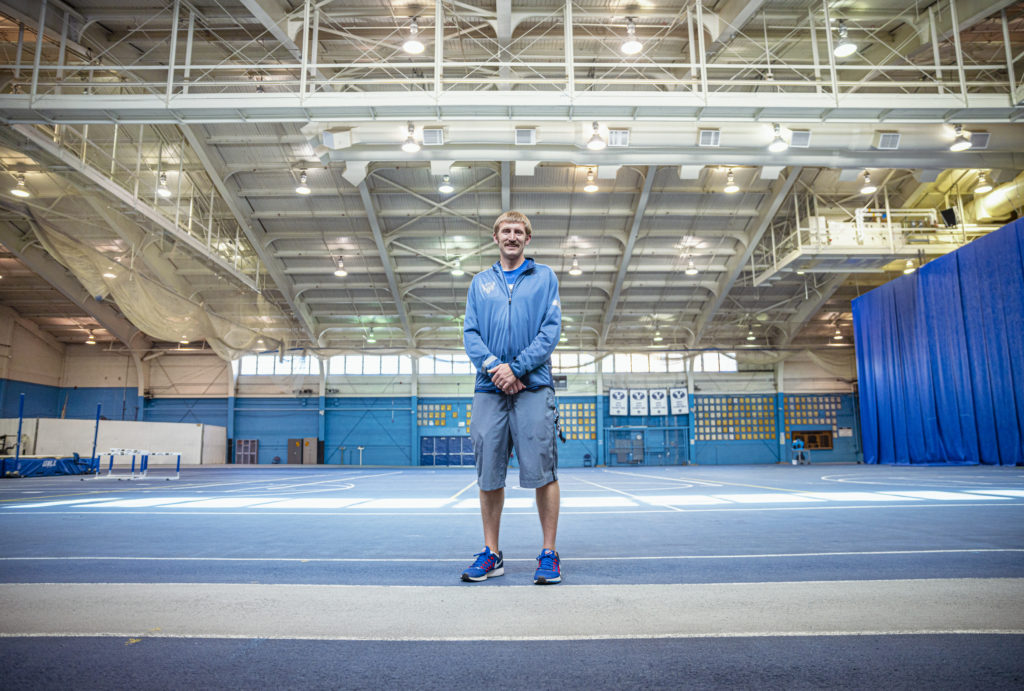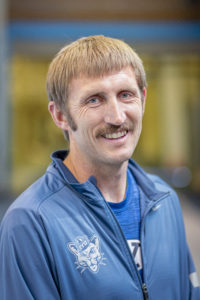
Athletes aren’t the only people who are selected to represent their countries in the Olympic Games; athletic trainers must qualify and apply before they are selected for a spot on an Olympic medical staff team — a behind-the-scenes position that cares for athletes and their bodies day and night during the Olympics.
BYU cross country and track and field athletic trainer Dustin Williams was recently selected as the head athletic trainer on the USA track and field’s medical staff for the upcoming 2020 Tokyo Summer Olympics. The USA track and field team is the largest team that represents the United States in the Olympics, making up about a quarter of Team USA. Williams is responsible for making sure every athlete is taken care of.

“It’s an honor to serve and help the Olympic athletes achieve their dreams and to work with them,” Williams said. “It will make for a busy summer, but I look forward to it.”
Williams has held similar positions in the past. He worked as an athletic trainer during the 2016 Rio Summer Olympics, he was a member of the medical staff during the 2008 Beijing Paralympic Games and 2012 London Summer Olympics, and he was head athletic trainer during multiple outdoor and indoor track and field world championships.
It’s a 24-hour job to work as an athletic trainer during the Olympics. Williams said he averaged two to three hours of sleep every night because he was taking care of Olympians from 6 a.m. to 2 a.m. every day, forcing him to become an expert at taking catnaps on the bus. The sacrifice was worth it for Williams because he loves the games’ atmosphere. He added that exceeding his smart-watch step goals every day was an added bonus.
He said one of his favorite memories was standing in an elevator during the Rio Olympics. The door opened, and Michael Phelps walked in. He remembers trying to stay calm and wishing the world-famous swimmer success in his upcoming event.
Volunteering as an athletic trainer is not for those with sightseeing in mind. Williams said he was only able to squeeze in three hours of exploring during the Rio Olympics. He’s prepared to buckle-down and work during the upcoming Tokyo Olympics, but he did visit Tokyo earlier this year and was able to do some sightseeing.
Athletic trainers also have the opportunity to walk in the closing ceremonies. Williams and his wife had the chance to walk together in the closing ceremony of the 2012 London Olympics because he was on the medical staff and she was an Olympian.
“Every year that goes by, we realize how precious that moment was,” Williams said.
He also said walking in the closing ceremonies is fun because you can let go of the stress that comes from the Olympic Games.
Williams’ students say they appreciate the opportunity they have to learn from him because of his happy personality and because he is well-experienced. Senior athletic training major Kaylie Muns said he always has a smile on his face and supports every athlete, no matter the sport.
Ana Hernandez, who is studying athletic training, said, “Dustin is a busy bee and is always working on one task after another, always with a positive attitude. He teaches clearly with every opportunity that arises and gives us the chance to practice our skills.”
Williams said he looks forward to the 2020 Tokyo Olympics. He will keep himself busy in the meantime with helping his athletes and students reach their dreams.




